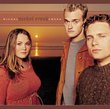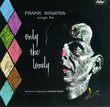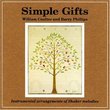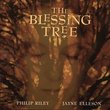| All Artists: Steve Turre Title: Lotus Flower Members Wishing: 0 Total Copies: 0 Label: Polygram Records Original Release Date: 2/9/1999 Release Date: 2/9/1999 Genres: International Music, Jazz, Pop, Latin Music Styles: Caribbean & Cuba, Cuba, Latin Jazz, Bebop, Latin Pop Number of Discs: 1 SwapaCD Credits: 1 UPC: 731455978728 |
Search - Steve Turre :: Lotus Flower
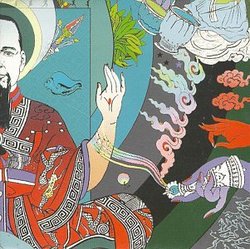 | Steve Turre Lotus Flower Genres: International Music, Jazz, Pop, Latin Music
His trombone slides its way across paths between notes--always finding spaces between conventionally defined sounds--so one can easily see why Steve Turre would excel in a string-heavy ensemble. And if you want to hear the... more » |
Larger Image |
CD DetailsSynopsis
Amazon.com His trombone slides its way across paths between notes--always finding spaces between conventionally defined sounds--so one can easily see why Steve Turre would excel in a string-heavy ensemble. And if you want to hear the evidence, here's its best manifestation. With violinist Regina Carter and cellist Akua Dixon on the nominal frontline with Turre, Lotus Flower joins the viscous, busy rhythms of drummer Lewis Nash and bassist Buster Williams with milky melodies that float and froth. "Chairman of the Board" puts on display the bop chops Turre has always made part of his option range, but it's during tracks like Rahsaan Roland Kirk's chamberesque "The Inflated Tear" and the slow blues-swing of "Sposin'" that Turre sinks his feet into harmonically woven, roundly formed musical earth. For those who found Turre's legendary Sanctified Shells his highest creative points, you'll be newly amazed after "Shorty," the set-closer that once again shows how much music can come from air blown through conch shells. --Andrew Bartlett Similarly Requested CDs
|
CD ReviewsPart Lotus Flower, part kudzu Mr. Stuart Robert Harris | Bradford-on-Avon, UK | 03/29/2001 (3 out of 5 stars) "Steve Turre has a great gift for blending unusual instrument line-ups to create sounds that ambush you from left field. In Lotus Flower, it's a classic rhythm section fronted by a decidely unusual trombone, violin and cello. The effect on the opening track is electrifying and whets the appetite for more delights to come. Unfortunately, the rest of the album only occasionally delivers.The album title and indeed the cover art hold out the promise of a different jazz experience - something transcendent, perhaps? And there are some really interesting tracks that catch the imagination. But on several too many, the sound of the band and the tunes they're playing just double the slick house bands on network chat shows - musically polished, professional and all, but not what I would call enlightening.Maybe I've been spoiled by Turre's "Rhythm Within" and "Sanctified Shells". The sound of the trombone maestro playing conch shells on some great numbers is what keeps me coming back to those albums time and again. I know Turre can hit the spot for me, he just doesn't hit it much with Lotus Flower." Flower Power (traditional medicine) Samuel Chell | Kenosha,, WI United States | 06/24/2003 (4 out of 5 stars) "Although the art work on this album is retro psychedelic-Zen, reminiscent of a 1970's fusion release, the music is quite mainstream. Turre's employment of violin and cello is less cutting edge than a logical extension of his fondness for Ellingtonian orchestral colors. Regina Carter, moreover, gets ample solo space on "Chairman" (a straightahead swinging blues) and "Sposin'" (done in 3/4) as does Akua Dixon on "Goodbye" (little improvisation but nice tone and technique).Turre is probably the most successful trombonist since J. J. Johnson--in fact, he's practically the only player of that unwieldy instrument who has managed to lead groups and release records under his own name over the past 10-15 years. His indebtedness to J. J. is in evidence on all of the tunes, though players like Joe Nanton ("Fragrance" is pure Duke with Tricky Sam) and Dickie Wells (dig the vocal effects on "Organ Grinder") are always lurking beneath the surface. On "Blackfoot," a burner on "Cherokee" changes, he risks it all. J. J. showed that it's possible to adapt the music of bebop to trombone; since then, players such as Carl Fontana and Bill Watrous have tried to make the instrument as lightning fast as Bird's alto saxophone or Diz' trumpet. But the trade-off has frequently been one of sound for speed, with "micro-phonics" replacing the projection of a "true" trombone sound. Turre's solo, while somewhat limited melodically and rhythmically, does not come at the expense of his instrument's inherent brassy brilliance.This is a set that should appeal to trombonists, string players, and even the occasional and casual listener of mainstream jazz."
|

 Track Listings (10) - Disc #1
Track Listings (10) - Disc #1


